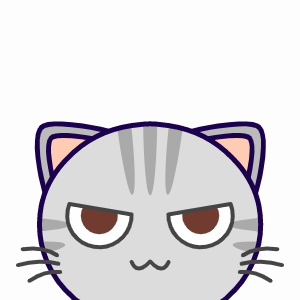英語で一日を追ってみよう、その3
My Day 〜working〜
仕事で見かける英単語
ID card「IDカード」
time clock「タイムレコーダー」
external line「外線」
extension line「内線」
copier「コピー機」
paper jam「紙詰まり」
document「書類」
personal information「個人情報」
receipt「領収書」
boss「上司」
staff「部下」
minutes「議事録」
agenda「議題」
estimate「見積書」
videoconference「テレビ会議」
clients「取引先」
business card「名刺」
product「製品」
half day off「半休」
colleague「同僚」
local time「現地時間」
business trip「出張」
sales「売上」
demand「需要、要求」
expense「経費」
paid leave「有給休暇」
仕事で使う英語表現
IDカードをタイムレコーダーにかざす
I hold up my ID card to the time clock.
「読み取り機にカードを通す」はswipe my ID card through the reader。
「IDカードをオフィスに忘れて出て、中に戻れないよ」
I left my ID card at the office,so I can’t get back in.
電話をとる
I answer the phone.
I get the phone.でも通じる。
「電話をきる」はhang up the phone.
電話を転送する
I transfer a phone call.
相手を保留にして待ってもらう
I put him/her on hold.
伝言を伝える
I give someone a message.
「後でかけ直す」はget back to him/her。
「メモを取る」はtake notes。
外線と内線を間違える
I mix up an external line with an extension line.
mix up A with B で「AとBを取り違える」
extensionは「拡張、伸長、内線電話」。間違えやすいので注意。
上司をCC(BCC)に入れる
I CC(BCC) my boss.
メールを一斉送信する
I send an email as bulk mail.
send bulk emailとしても良い。
文字化けしたメールを受け取る
I receive a garbled email.
メールの添付書類を開く
I open the email attachment.
「添付メールを送る」はsend an email with an attachment。
書類を提出する
I submit the documents.
「〜を提出する」はturn/hand in 〜でも良い。
「書類に判を押す」はstamp the documents。
コピーをとる
I make some copies.
紙詰まりを直す
I clear the paper jam.
「このコピー機はよく紙詰まりする」はThis copier often gets jammed.。
資料を準備して配布する
I prepare my material and distribute copies.
「(文書など)を作成する」はdraw up 〜。
個人情報を含む書類を全部シュレッダーにかける
I shred all the documents that include personal information.
勤怠管理をする
I manage the timesheets.
timesheetsは「勤務時間記録表」のこと。
仮払いをする
I make a deposit.
make a depositには「預金する」の意味もある。
経理部に領収書を回す
I pass my receipt on to the accounting department.
領収書はvoucherとも言う。travel voucherで「出張の領収書」。
経費を精算する
I get reimbursed for my expenses.
reimburseは「〜を払い戻す」。
reimburse (人) for 〜で「(人)に〜の費用を払い戻す」。
郵便物を部内に配る
I deliver mail throughout the department.
「(書類など)を回覧する」ならcirculateを使い、
circulate the memo「社内連絡を回覧する」のように言う。
机の上を片付ける
I organize the top of my desk.
稟議書を回す
We circulate a “ringi”,a request for approval.
該当する英単語がない場合は、日本語の後にそれを説明する英語を付け加えると良い。
部下と打ち合わせをする
I have a meeting with my staff.
「部下」は厳密にはsubordinateだが、一般的には上司をboss、部下をstaffと言う。
議事録をとる
I take minutes of the meeting.
会議の「議題」はagendaと言う。
他部署に根回しする
I approach another department in advance.
I give another department a heads-up.としても良い。
heads-upは「事前に伝えておく話」の意味。
見積書を作成する
I draft an estimate.
「見積もり」はquoteとも言う。
「相見積もりをとる」はget/seek competitive quotes。
商品を売り込む
We market our merchandise.
このmarketは動詞で「〜を市場に出す、売り込む」を意味する。
プレゼンに勝って契約を勝ち取る
I do well in the presentation and secure the contract.
「プレゼンを行う」はmake/do a presentation。
secureは「〜を確実に手に入れる」の意味。
契約書を法務に回す
I hand the contract over to the legal department.
発注する
I place an order.
「納品書」はdelivery slipと言う。
海外の取引先とテレビ会議をする
We hold a videoconference with clients overseas.
We talk via videoconference(Skype) with 〜「〜とテレビ会議(スカイプ)で話し合う」と言うこともできる。
海外からの来客に付き添う
I attend to a visitor from abroad.
attend to 〜のようにtoが付くことに注意。
接客する
I meet a client.
接客する「応接室」はreception roomと言う。
取引先と名刺を交換する
I exchange business cards with a client.
外回りの営業をする
I make the rounds to sell the product.
make the roundsは「持ち場を回る、巡回する」の意味。
日帰りで出張する
I go on a one-day business trip.
「出張する」はout of townを使い、
I’m out of town next week.「来週は出張しています」と言うこともできる。
接待をする
We entertain our customers.
「接待する」は顧客を喜ばせることなので、entertainを使う。
現場に直行する
I go directly to the side.
「自宅に直帰する」はgo straight homeと言う。
売上が上がる(落ちる)
The sales are up(down).
売上は好調(不調)
The sales are strong(weak).
strongの代わりにgoodでも良い。
売上は変化なし
The sales are flat.
10分間の休憩を取る
I take a ten minute break.
昼休みを取る
I take a lunch break.
「昼食に出る」はgo out for lunchと言う。
半休を取る
I take a half day off.
take the morning offで「午前休を取る」になる。
先輩を追い越して昇進する
I get promoted ahead of my senior.
「昇進する」はget/receive a promotionとも言う。
異動を希望する
I request a transfer.
転勤の辞令が出る
I receive an official notification of appointment to transfer.
単身赴任する
I transfer without my family.
「単身赴任」を一言で表す英語はないので説明的になる。
歓迎会(送別会)を開く
We throw a welcome party(a farewell party).
hold「〜を開く」を使っても良い。
仕事で思うこと
内線201番をお願いします。
I would like extension 201,please.
Could I have extension 201?
extension「内線電話」
担当者にお繋ぎいたしますので、少々お待ちください。
Let me connect you to to the person in charge of that. Please hold on.
person in charge「担当者」
let me connect youで「お繋ぎします」
他にも、
Let me transfer you.
I’ll put you through.
などと言える。
Please hold on.「少々お待ちください」
いくつかお尋ねしてもよろしいでしょうか?
May I ask you a couple of questions?
a couple of 〜「いくつか」
May I ask you some questions?でもOK。
May I ask you any questions?
anyを使うと「どんな質問でも(もしかしたらダメかもしれないけど)」というニュアンスが入る。
引き継ぎのために新人と一緒にクライアントのところに行くんだ。
I’m introducing a new hire to a client as he will be taking over my role.
take over 〜「〜を引き継ぐ」
「〜を一つ一つ説明する」と言いたい場合は、explain 〜 point by pointを使う。
「では、顧客情報の入力の仕方を一つ一つ説明しましょう。」
OK. I’ll explain how to enter customer data point by point.
今度の担当者は頼りないって思われちゃったかな。
I hope I didn’t strike them as being unreliable.
strike 〜 as …「〜に…という印象を与える」
unreliable「頼りにならない」
相手の立場から「今度の担当者」は、the next person in chargeとなる。
「今度の担当者はどんな人になるのかな。」
I wonder who the next person in charge will be.
今年の新人には大いに期待している。
I’m expecting a lot from the new team members.
expect 〜 from…「…から〜を期待する」
new team member(s)「新人」
「新人(新入社員)」はnew employee/hire(hireは名詞)、またはrecruitとも言う。
「当社では新入社員に実地研修を行っています。」
We offer on-the-job training to new employees.
今日は内勤予定だから、楽なコーデでいいや。
I’ll wear something casual today since I will be staying in the office all day.
something casual「カジュアルなもの(服)」
服装規定(dress code)がカジュアルな会社はcasual office。
「カジュアルOKの会社で働いていると、時々着ていくものに迷うよ。」
I sometimes wonder what to wear since I work in a casual office.
仕事が溜まってきたなあ。
My work has been piling up.
pile up「山積する、たまる」
pileは名詞で「(書類などの)山」を意味する。
First,I should begin with this pile of documents.
「まずは、この書類の山から片付けないと」
「仕事がなかなか捗らない。」
My work is not progressing as much as I’d hoped.
「やるべきことがたくさんある。」
I have a lot of work to do.
まず、やることの優先順位をつけなきゃ。
First of all,I should set priorities for what to do.
first of all「まず第一に」
set priorities for 〜「〜に優先順位をつける」
優先順位が曖昧で優柔不断な人に対しては、
Get your priorities straight.
「自分がまずやるべきことを見極めなさい」と助言できる。
すみません、今日は出たり入ったりで、ご連絡が遅くなりまして。
Sorry,it took a while for me to get back to you.
I’ve been in and out of the office all day.
get back to 〜「〜に折り返し連絡する」
in and out of 〜「〜に出たり入ったり」
「離席している」はbe away from one’s deskと言う。
「離席している間に大事な電話を取り損ねてしまった。」
I missed an important phone call while I was away from my desk.
できた書類からすぐにください。
Please give us each document as it’s ready.
as it’s ready「準備ができ次第」
その件は、一旦持ち帰って、社内で検討してもよろしいでしょうか。
Would you mind if I take that matter back to my office and discuss it with my colleagues?
Would you mind if I 〜?「〜してもお気になさらないでしょうか?」
colleague「同僚、同じ部署の人」
「検討する」はこの場合「〜について意見を交わす」ことなのでdiscussを使う。
「上司からの申し出を検討してみよう。」
I’ll consider the offer from my boss.
進捗状況を教えてください。
What is the progress status?
progress status「進捗状況」
進捗状況を尋ねる際は、come along「進行する、捗る」を使って、
How’s the proposal coming along?
「企画書の進捗はどう?」
予算について話があるんだけど。
I need to talk to you about the budget.
talk to 人 about 〜「〜について人に話す」
budget「予算」
この企画、スケジュールと予算も考慮してもっと揉んでくれる?
Can you revise the plan and take scheduling and budgeting into account?
revise「〜を見直す」
take 〜 into account「〜を考慮する」
budgeting「予算編成」
この「揉む」は「検討し、改善する」の意味なのでreviseで表す。
企画を「棚上げする」は、英語でもput 〜 on the shelfと言うほか、
back-burner「(調理中の鍋を一時的に置いておく)奥のコンロ」を用い、
The plan has been put on the back burner for now.
「企画は今のところ棚上げになった。」と言う。
この企画書、ずいぶんバージョンアップしたね。
This project plan has improved so much.
improve「良くなる、改善する」
「バージョンアップ」は和製英語。
概してimproveまたはupgrade「〜を向上させる」が意味的に対応する。
「アプリをバージョンアップする必要がある。」
I need to upgrade the app.
もうまとめできてる、速いなあ。
The summary is already done. That was quick.
summary「要約、まとめ」
年末などに提出する「まとめ」や「総括」はsummaryと言う。
「今期の当初の数値目標に関するまとめを書きます。」
I’ll write a summary about the initial numerical targets in this quarter.
数字丸めといて。
Give me a rough figure later.
rough figure「概算の数字」
この「丸める」は、「(四捨五入などして)見積額の端数を切り捨て、見やすくする」こと。
なお、英語で「四捨五入する」はround offと言う。
「数値をすべて小数第1位に丸めてください。」
Can you round off all the figures to one decimal place?
それは部長マターだ。
That’s a matter for the manager.
matter「(考慮すべき)事柄」
manager「部長(管理職)」
事柄を判断・処理する「裁量」はdiscretionと言う。
「部長の裁量にお任せしよう。」
Let’s leave the matter to the manager’s discretion.
上から圧力がかかった。
There’s pressure from upstairs.
pressure from 〜「〜からの圧力」
upstairs「上層部」の代わりにmanagement「経営者側」を使っても良い。
「上層部が圧力をかけてきている。」
Management is putting pressure on us.
いつまでに発注すべきですか?
By when should we place an order?
by when 〜「いつまでに〜?」
貴社に発注をお願いしたいです。
I would like to place an order with your company.
orderする相手先はwithで表す。
締切まで非常に短い期間で、大変申し訳ございません。
I’m so sorry that the deadline schedule is so tight.
deadline「締切」
tight「タイトな、きつい」
「締切に間に合う(間に合わない)」は、meet(miss) the deadlineと言う。
「締切に二日遅れてしまい申し訳ございません!」
I’m so sorry that I missed the deadline by two days!
すぐに取り掛かります。
I’ll work on it soon.
I’ll get on it right away.
work(get) on it「取り掛かる」
なんか、今日は頭が働かない。
I don’t know why but my head is fuzzy today.
fuzzy「ボヤッとしている、不明瞭な」
「頭がはっきりしない。」
I have a stuffy head.
My head isn’t clear today.
また、out to lunchには「お昼で外出中だ」という意味の他に、
「ぼんやりして、からっぽの」という意味もあるので、
My brain is out to lunch now.「今、頭がお昼休み中」という表現もできる。
単純作業でもそれなりに時間を食うなあ。
Even a simple task takes so long.
simple task「単純作業」
「複雑な作業」はcomplex task、「時間がかかる仕事」はtime-consuming taskと言う。
「単純でも複雑でも、やたら時間のかかる仕事はやりたくない。」
Whether it’s simple or complex,I hate doing a time-consuming task.
丁寧な仕事ぶりはいいんだけどねぇ・・・。
I admit he does his job carefully,but …
I admit 〜「〜を認める」
「〜だが…」はTrue,〜,but …「確かに〜だけど…」を使っても表現できる。
「確かに彼女は仕事は速いけど、ミスも多いよね。」
True,she’s quick at work,but she makes lots of mistakes.
今忙しいから、これが終わったら声かけるね。
I’m tied up right now. I’ll let you know when I’m done with this.
be tied up「手がふさがっている、忙しい」
be done with 〜「〜を終える」
be tied up with(in) 〜で「〜で忙しい、手がふさがっている」となる。
メールの返信で今は手いっぱいだ。
I’m tied up with replying to email right now.
be tied up with work「仕事で手が離せない」
午前中ずっとミーティングで身動き取れなかった。
I was tied up in a meeting all morning.
be tied up in a meeting「ミーティングで自由に動けない」
休憩しようよ!
Let’s have a break!
Let’s take a break!
break「休憩」は流れを断つイメージがある。
ランチミーティングにいいお店、誰か知ってるかな?
Do you think anyone knows a good restaurant for the lunch meeting?
lunch meeting(=luncheon meeting)「昼食をとりながらの会議」
「昼食を食べながら会議を行う」であれば、have a meeting over lunchとなる。
「ランチを食べながらミーティングしよう。時間が節約できるし。」
Let’s have a meeting over lunch. That’ll save some time.
うわ!睡魔が!昼ごはん食べすぎたかも。
Yikes! I’m feeling drowsy! Maybe because I had a heavy lunch.
Yikes!「うわっ(驚き、困惑の間投詞)」
drowsy「眠い、眠気を催す」
heavy lunch「ボリュームのある昼食」
drowsyの名詞形はdrowsiness「眠気、睡魔」。
「昼食後は必ず睡魔に襲われる。」
I always get drowsy after lunch.
「午後の会議は眠気を催す。」
The afternoon meeting induces drowsiness.
今日はどの会議室も埋まってるなぁ。
All the meeting rooms are full today.
full「ふさがって、埋まって」
事前の予約状態について言うのであれば
All the meeting rooms are booked today.となる。
今日は使える会議室がないようです。
There’s no meeting rooms available today.
現地のエンジニアと1回擦り合わせた方がいいかも。あっちは今何時?
I think we should have a meeting with the engineers overseas. What’s the time there now?
have a meeting with 〜「〜と打ち合わせする、〜と擦り合わせる」
local time「現地時間」と言っても良い。
「現地時間はここより3時間早い。」
The local time there is three hours ahead of local time here.
やっぱり出張で行かなきゃだめかな。
I think I’ll need to go on a business trip there.
go on a business trip「出張する」
「やむを得ない出張」は unavoidable business trip。
「やむを得ず出張で名古屋に行くことになりました。」
I have to go on a business trip to Nagoya.
今度の出張、ビザいるんだっけ?
Do I need a visa for the next business trip?
visa「ビザ、査証」
apply for a visa「ビザを申請する」
obtain a visa「ビザを取得する」
extend one’s visa「ビザを延長する」
といった表現が良く使われる。
「ビザを失効した。」
My visa has expired.
今日は英語のプレゼンだから、緊張するなぁ。
I have a presentation to make in English today. I’m so nervous.
presentation「プレゼン、発表」
nervous「緊張した」
「緊張状態」を表すフレーズとしては、
I’ve got butterflies in my stomach.
「あがっていて落ち着かない。」
I’ve got cold feet.
「緊張して怖気付く。」
などがある。
今月は売上が好調だ。
Our sales are strong this month.
売上が昨年を20%上回っています。
We are 20% up over last year.
「売上が○%上がった(下がった)」は、We are ○% up(down).と言う。
「売上が昨年を10%下回っています。」
We are 10% down over last year.
今月の売上のトータルを計算してもらえますか?
Can you calculate the total sales for this month?
calculate「計算する」
新製品の売れ行きはどうでしょうか?
How is our new product selling?
product「製品」
How is 〇〇 selling?で「売れ行きはどうですか?」
「あなたの本の売れ行きはどうですか?」
How is your book selling?
この商品の需要は高いですね。
There is a big demand for this product.
demand「需要、要求」
demand for 〜「〜の需要」
This product is in high demand.と言ってもよい。
「この商品は需要がないな。」
This product is in low demand.
今月の営業成績、トップを取れそうだ。
I think I’ll be top in the sales performance ranking for this month.
sals performance「営業成績」
ranking「順位、ランキング」
「営業成績優秀につき特別ボーナスが与えられる。」
I’m awarded a special bonus for superior sales performance.
田中さん、近々子会社に出向になるらしいよ。
They say Mr.Tanaka is going to be farmed out to one of our subsidiaries.
they say「噂では、〜らしい」
be farmed out to 〜「〜に出向になる」
subsidiary「子会社」
farm out 〜はもともと「〜をファームに送る、2軍落ちさせる」という野球用語。
単に、be transferred to 〜「〜に転勤になる」と言っても良い。
さっさとこれを片付けて、休憩しよう。
Let’s get this one over with and take a breather.
get 〜 over with「〜を片付ける」
take a breather「小休止する」
get 〜 over withは、「〜(気乗りしない仕事など)を手早くやっつける」の意味。
「小休止」には、take five「5分休憩する、ひと休みする」という表現も良く使う。
「5分休憩を取ろう。」
Let’s take five.
デスクワークは肩が凝る。
Desk work definitely gives me a stiff neck.
desk work「デスクワーク、事務」
definitely「間違いなく」
stiff neck「固まった首、肩凝り」
肩が凝ると首を動かしにくくなるので、stiff neckと言うことが多い。
feel stiff/tense around the neck「首の周辺が凝る」とも言う。
デスクワークのし過ぎで「猫背になる」は develop a hunched back。
パソコンで目が乾燥する。
Working on a computer makes my eyes dry.
work on 〜「〜上で作業する」
「パソコン画面を見過ぎたせいで疲れ目になる。」
I get eye strain from staring at the computer screen.
「2時間ごとに目薬を差す。」
I apply eye drops every two hours.
この資料、社外秘だよね?
This document is confidential,isn’t it?
confidential「社外秘の、機密の」
「社外秘で」は for internal use onlyという言い方もある。
「職員名簿は社外秘です。」
The staff list is for internal use only.
今のはセクハラすれすれの発言じゃない?
What he just said is a little too close to sexual harassment,isn’t it?
close to 〜「ほぼ〜、〜とすれすれ」
sexual harassment「セクハラ」
同僚に対して「セクハラ的な発言にもっと気を使った方がいいよ」と言うなら、
You should be more sensitive about sexually discriminating statements.。
sexually discriminating「性差別的な」
上司には逆らえない。
I’m at the boss’s beck and call.
beck「手招き、お辞儀」
at someone’s beck and call「人の言いなりになっている」
「〜の言いなり」は、under someone’s thumbとも言う。
「ジムはボスの言いなりだ。」
Jim is under his boss’s thumb.
「タケシはゴマすりだ。」
Takeshi is such a flunky/suck-up.
課長って必要なときに限って居ないのよね!
The chief is never in when he’s needed!
cheif「課長」
be in「出社している、在席している」
「酒井は席を外しております。」
I’m sorry,Mr.Sakai is not at his desk.
「清水さんは病欠してます。」
Ms.Shimizu is off sick today.
急に残業しろなんて、今日は予定があるのに。
They’re asking me to work overtime now? I have plans for tonight.
work overtime「超過勤務する、残業する」
overtimeは名詞で「規定外労働、残業」、副詞で「規定時間を超過して」の意味。
「残業手当が支払われない。」
I’m not paid extra for overtime.
「サービス残業する」work overtime without pay
うちの会社も在宅勤務制度を取り入れればいいのに。
I wish my company would allow telecommuting.
allow 〜「〜を許可する」
telecommuting「在宅勤務制度、テレワーク」
telecommutingは working from home「自宅から勤務する」と言っても良い。
「在宅勤務制度のおかげで長時間通勤から解放された。」
Telecommuting saves me long hours of commuting.
これは経費で落とせるのかな?
Can we put this down to expenses?
put 〜 down to expenses「〜経費で落とす」
put 〜 on the company「〜を会社の経費で落とす」でも同じような意味。
「〜を水増し請求する」は padを使って、
It’s impossible to pad travel expenses here.
「この会社では出張費の水増し請求は不可能だ」のように言う。
土曜出勤したので、月曜に代休をとろう。
I’ll take Monday off in lieu since I came to work on Saturday.
take 〜 off in lieu「〜の代わりの休みをとる」
in lieuは「代わりに」の意味。
take tomorrow morning off in lieu.で「明日は午前休をとる」となる。
「たまに休日出勤します」
I sometimes work on a holiday.
「休日出勤手当の申請をしよう」
I’ll apply for my holiday allowance.
早く有休消化しないとなくなってしまう!
I have to use up my paid leave or else it’ll become invalid!
use up 〜「〜を使いきる」
or else「さもないと」
invalid「無効な」
「有休は年20日取れます。」
I have 20 days of paid leave a year.
「使ってない有休を繰り越そう。」
I’ll carry over unused paid holidays.
夕方には化粧が崩れてる。
My makeup wears off by evening.
wear off「徐々に落ちる、消える(come off)」
by evening「夕方までには」
「化粧を直す」fix one’s makeup
「化粧をし直す」redo one’s makeup
「化粧を落とす」take off one’s makeup
辞めることばかり考えないで、とりあえず今の仕事を頑張ろう。
Let’s stop thinking about quitting and do our best with the work we’ve got.
quit「辞める」
do one’s best with 〜「〜において最善を尽くす」
このような状況で使う「石の上にも三年」は、英語ではperseverance「忍耐力」を用いて、
Perseverance wins in the end.
「最後に忍耐が勝つ。」
Perseverance brings success.
「忍耐が成功をもたらす。」
などのように言う。
新人を飲み会に誘ったら、サクッと断られた。
I asked the new team member out for a drink,and he/she just said no.
ask 〜 out for …「〜を…に誘う」
「簡単に、軽く」という意味の「サクッと」はquick「素早い」を使って表現できる。
「サクっとランチしよう。」
Let’s have a quick lunch.
送別会は飲み放題でいいよね?
Is an “all-you-can-drink” OK for the farewell party?
all-you-can-drink「飲み放題」
farewell party「送別会」
「食べ放題&飲み放題」であれば、all-you-can-eat-and-drinkとなる。
「90分食べ放題・飲み放題で一人4000円です。」
The 90-minute all-you-can-eat-and-drink is 4000 yen each.
新人歓迎会にはどのお店がいいか、考えておいて。
Think of a restaurant for the welcome party for the new team members.
welcome party「歓迎会」
「当たりをつける」前に「〜を調べてみる」は、do some research on 〜。
「会場を決める前にちょっとレストランを探ってみよう。」
Let’s do some research on restaurants before deciding on the venue.
今日は定時であがろう。
Let’s try and leave the office on time today.
leave the office「退社する、帰宅する」
on time「時間通りに」
「今日の仕事はもう終わりにしよう。」
Let’s call it a day!
会社で設定する「ノー残業デー」は、no overtime day。
「今日はノー残業デーでみんな定時退社のはずなんだけど・・・」
Today’s a no overtime day,so we’re supposed to leave the office on time,but…
仕事で、まだ帰れない。
I’m stuck at work.
stuck「動けない」
誰か人を雇った方がいいと思います。
I think we should hire someone.
hire「雇う、採用する」 cf.fire「解雇する」
do.
「すばらしい仕事をする唯一の方法は、自分のやっていることを好きになることだ。」




